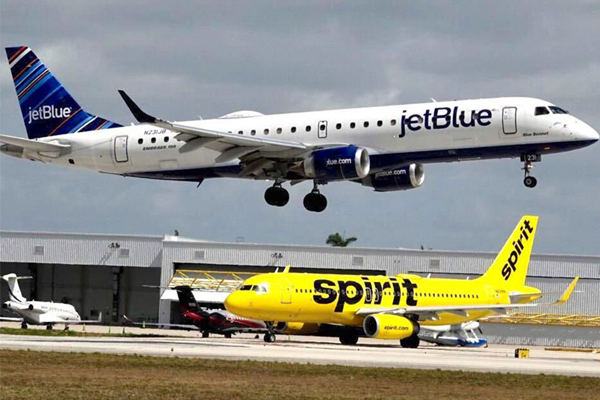
NEW YORK, N.Y.— New York City’s roughly 65,000 app-based food-delivery workers typically work at least six days a week for well below minimum wage, according to “Essential but Unprotected: New York City’s App-based Food Delivery Workers.” a study released September 13, by the Worker’s Justice Project, Los Deliveristas Unidos, and Cornell University’s School of Industrial and Labor Relations.
The study, based on surveys from 500 “deliveristas” in the city, focus groups with more than 40 of them, and individual interviews, estimated that they make $12.21 an hour on average including tips, and slightly less than $8 in base pay. Because they are defined as independent contractors, the delivery-app companies don’t have to pay them the city’s $15 minimum wage. More than 40% of participants also reported that they’d been not paid or underpaid tips, paid late, or not paid at all for a week of work.
“Our reality is now more visible. This study debunks what the apps have been saying,” Antonio Solís, a deliverista for DoorDash and Grubhub in Astoria, Queens, told a crowd of more than 100 people outside City Hall Park, speaking in Spanish through a translator. Many arrived on the buzzing electric motorbikes they use for work, wearing plastic helmets and donning black “Deliveristas Unidos” T-shirts.
DoorDash, Solis continued, claims that its delivery workers make $33 an hour while they’re on a delivery, and that most workers are doing the gig part-time.
“That’s not true,” he said. “My part-time is 84 hours a week.” Two-thirds of the deliveristas surveyed said they worked at least six days a week. And like app-based taxi companies, app-based food-delivery companies generally pay workers only for the time they’re actually on a delivery, not for time when they’re logged into the app, waiting for their next assignment.
Other problems deliveristas face include being denied access to toilets on the job — 83% reported that restaurants they were delivering food from had refused to let them use it at least once — along with accidents, bike thefts, robberies, and assaults. Sixteen deliveristas have been killed on the job in the past year, the report said. They included Francisco Villalva Vitinio, 29, murdered in East Harlem in March while resisting the robbery of his electric bike.
The apps also require that deliveristas maintain a minimum rating in order to work the peak lunch, dinner, and evening hours, and will mysteriously lower their ratings if they turn down deliveries — usually because the trip is too long a trip for the amount it pays — said Maria Figueroa, the study’s lead author.
The researchers relied on “extensive field research” rather than using a random sample, Figueroa, dean of the School of Labor at Empire State College, told LaborPress. “We feel confident that this is a representative sample.”
About 80% of deliveristas are immigrants, the study said, most commonly from Mexico, Guatemala, Bangladesh, Pakistan, West Africa, and China’s Fujian Province. The other 20% are mostly black Americans.
“We don’t have the resources to do a full random sample,” co-author Andrew Wolf, a labor sociologist who studies immigrant workers in the app-based taxi and food-delivery industries, told LaborPress. Many supposedly random-sample surveys, he added, rely on Facebook ads to recruit participants, and that misses workers who speak indigenous languages such as Guatemalan K’iche and not Spanish or English.
“The idea is to inform the city about what data they need to get the apps to turn over,” he said.
The City Council is considering six bills intended to improve the deliveristas’ situation. Councilmember Justin Brannan (D-Brooklyn), a sponsor of two of them, told LaborPress that the Council is likely to act on them in the next two weeks.
One, sponsored by Councilmember Carlina Rivera (D-Manhattan), would fine restaurants and bars that refuse to let delivery workers use the bathroom. Others would set per-trip minimum payments for deliveries; prohibit third-party companies from penalizing workers who don’t take a delivery because it’s too far; mandate that they provide workers with insulated bags to prevent food from getting cold; and require that they state clearly how tips are calculated and paid.
Another, sponsored by Councilmember Carlos Menchaca (D-Brooklyn), would require app companies to pay their workers weekly, on time, and without charging them fees for it. Deliveristas often have to pay $1.99 to $20 to get their wages, he told LaborPress, and sometimes if they don’t pay it in advance, they get nothing.
The situation is complicated because many deliveristas don’t have bank accounts and thus can’t be paid by direct deposit, he said. But the app companies, Menchaca said, charge them high fees on the assumption “that they’re not going to fight about it, because they’re undocumented immigrants.
App companies are resisting related regulations. On Sept. 9, DoorDash, Grubhub, and Uber Eats sued the city of New York in federal court, attempting to void a May 2020 law that said third-party delivery platforms could not charge restaurants more than 15% of an online order for delivery services, and not more than 5% for other services such as marketing. The law was extended in August.
DoorDash is also suing to stop a similar fee cap in San Francisco.



